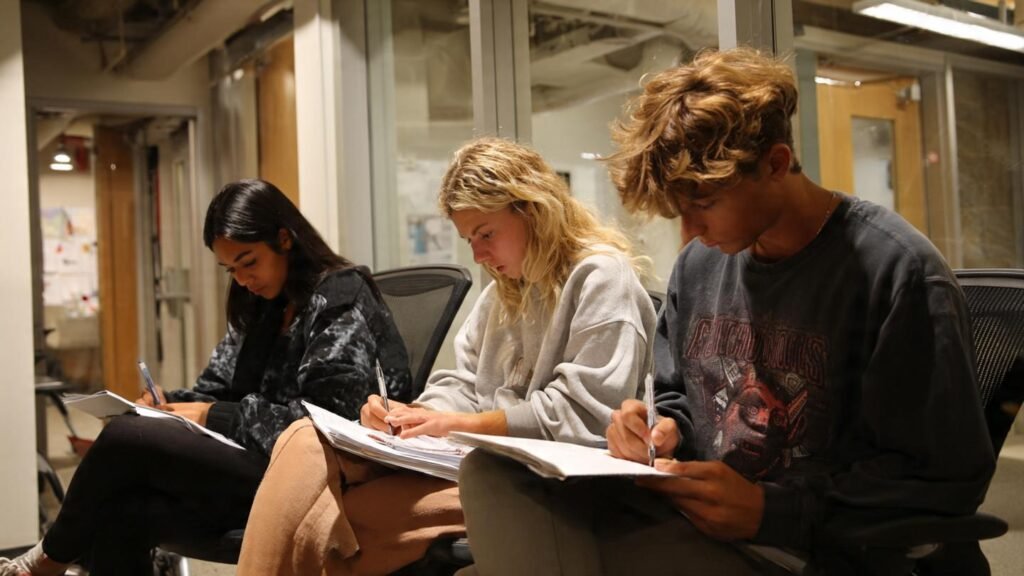In this article we will discuss about the topic Top 10 Mistakes Students Make While Preparing for Government Exams So, Preparing for government exams such as UPSC, SSC, Banking, Railways, Teaching, or State PSC is often described as a battle of patience, consistency, and clarity. Every year, lakhs of aspirants dedicate months-sometimes years-to preparation. Yet, only a small fraction finally clears.
Why does this happen?
The truth is, most failures don’t come from lack of intelligence or hard work-they come from avoidable mistakes.Small errors, repeated daily, accumulate into big setbacks when exam day arrives.
This guide will help you understand the 10 most common mistakes aspirants make while preparing for competitive exams, along with practical strategies to overcome them.
1. Ignoring the Power of Self-Study
Many aspirants rely too heavily on coaching classes, attending lectures for hours but never reviewing the material independently. Coaching can provide structure, but true mastery comes only from self-study, revision, and practice.
Real Insight: A JEE aspirant once shared that he attended coaching daily for six hours but never revised. By exam day, he had “heard” every topic but “remembered” very little.
Fix It: Dedicate at least 40-50% of your total study hours to self-study. After coaching or online classes, spend 2–3 hours revising and solving problems on your own.
2. Studying Hard but Not Smart
Some students proudly log 12–14 hours of study daily, but their results don’t match the effort. Why? Because time spent ≠ effectiveness.
Smart study means:
- Prioritizing high-weightage topics.
- Practicing exam-oriented questions.
- Learning from mistakes in mock tests.
Example: In SSC CGL, Quantitative Aptitude and Reasoning carry more weight than certain sections of General Awareness. Spending weeks on low-priority chapters is wasted effort.
Fix It: Apply the Pareto Principle (80/20 Rule)-focus on the 20% of topics that give 80% of marks.
3. Hoarding Material Without a Strategy
One of the biggest traps in the digital era is information overload. Aspirants download dozens of PDFs, buy multiple guidebooks, and subscribe to endless YouTube channels. The result? Confusion and mental fatigue.
Fix It: Stick to 1-2 trusted sources per subject and revise them multiple times. Remember-depth matters more than breadth. A single book revised five times beats five books read once.
4. Procrastination: The Tomorrow Illusion
“I’ll start tomorrow.” This is the silent dream-killer. Postponing difficult subjects or leaving weak areas for later only leads to backlogs.
Real Example: A NEET aspirant kept postponing Physics preparation, hoping to cover it “later.” When the exam approached, the backlog became unmanageable.
Fix It: Start small but start today. Use the Pomodoro Technique—study for 25 minutes, take a 5-minute break, repeat. The first step is the hardest, but consistency compounds.

5. Social Pressure and Emotional Isolation
Aspirants often withdraw from family functions or avoid meeting friends, thinking social interaction is a waste of time. Over time, this leads to loneliness, anxiety, and low confidence.
On the flip side, excessive family pressure and constant comparisons—“Your cousin already got a job,” “Still no result?”- add unnecessary stress.
Fix It:
- Attend selective family functions for balance.
- Communicate openly with your parents about your study plan.
- Surround yourself with positive, like-minded aspirants rather than negative comparisons.
6. Falling Prey to Distractions
Smartphones, OTT platforms, online games-these are silent productivity killers. What starts as a “10-minute break” often turns into hours wasted.
Fix It:
- Use apps like Forest, Freedom, or Digital Wellbeing to block distractions.
- Keep your phone in another room while studying.
- Reward yourself with entertainment only after completing your study targets.
7. Avoiding Mock Tests
Skipping mock tests is one of the most common yet most damaging mistakes. Mocks are not optional-they are essential. They help test not only your knowledge but also your stamina, speed, and ability to handle pressure.
Real Example: A banking aspirant avoided mocks, believing she was “saving questions.” On exam day, she panicked, couldn’t manage time, and underperformed.
Fix It: Start with 1 mock test per week and gradually increase to 3–4 per week before the exam. Most importantly, analyze mistakes and revise weak areas after every mock.
8. Poor Time Management
During exams, time often slips away. Many aspirants spend too long on tough questions and leave easy ones unanswered.
Fix It:
- Follow the Two-Pass Strategy: attempt easy questions first, then return to tough ones.
- Train with a stopwatch during practice.
- Develop a subject-wise time allocation strategy in mocks and stick to it.
9. Neglecting Revision
Revision is the oxygen of exam preparation. Without it, even well-learned topics fade away. Yet, many students make the mistake of studying everything once and moving on.
Fix It:
- Dedicate 25-30% of your total study time to revision.
- Create concise notes, mind maps, and flashcards.
- Revise in cycles: within 24 hours, after 7 days, and after 30 days.
10. Ignoring Physical and Mental Health
In the race to study more, aspirants often sacrifice sleep, food, and exercise. But without health, preparation collapses.
Common Issues:
- Back pain & stiffness from long sitting hours.
- Eye strain due to excessive screen time.
- Sleep disorders from late-night study and caffeine.
Fix It:
- Sleep 6-8 hours daily.
- Exercise or walk for at least 20 minutes.
- Follow the 20-20-20 rule for eyes: every 20 minutes, look at something 20 feet away for 20 seconds.
- Eat balanced meals and avoid junk food.
Bonus Mistake: Ignoring Emotional Health
Competitive exams are mentally draining. Many aspirants suffer from self-doubt, anxiety, and even depression but hesitate to seek help.
Fix It:
- Talk to mentors, friends, or family.
- Join peer groups or online forums for support.
- Take short breaks to refresh your mind.

Fact Table: Top 10 Mistakes Students Make While Preparing for Government Exams
| Mistake Area | Unique Fact / Hidden Truth |
|---|---|
| 1. Ignoring Self-Study | Coaching covers concepts, but 70-80% of toppers say their actual retention came only from self-study and note-making. |
| 2. Studying Hard but Not Smart | Research in learning science shows that after 4-5 hours of focused study, productivity drops sharply-proving “long hours” ≠ better results. |
| 3. Hoarding Material | Cognitive psychology explains the “paradox of choice”-the more books/resources you collect, the harder it becomes to start studying. |
| 4. Procrastination | A Stanford study found procrastinators experience more stress and lower grades, not because they lacked ability, but because of delayed action. |
| 5. Social Pressure & Isolation | Aspirants who stay completely isolated are 3x more likely to experience burnout compared to those who balance study with minimal social interaction. |
| 6. Distractions (Phones & OTT) | On average, students underestimate their daily phone usage by 2 hours-that’s nearly 600 wasted hours in a year. |
| 7. Skipping Mock Tests | Toppers reveal that the exam hall pressure feels familiar only if you’ve taken at least 20-30 full-length mocks before the actual test. |
| 8. Poor Time Management | Data from mock test platforms shows 25-35% of students leave easy questions unattemptedbecause they mismanage time on tougher ones. |
| 9. Neglecting Revision | Neuroscience confirms the “Forgetting Curve” we forget 60% of new information within 24 hours if not revised. |
| 10. Ignoring Health | Sleep research shows missing just 2 hours of nightly sleep can reduce memory retention by nearly 30%-as harmful as skipping study sessions. |
Also read: How to Prepare for Government Exams at Home?
Final Thoughts
Preparing for government exams is not just about reading books-it’s about building a sustainable system of preparation. Success doesn’t only depend on how much you study, but also on how well you avoid mistakes.
- Self-study is your foundation.
- Smart strategy beats blind effort.
- Revision and mocks are non-negotiable.
- Health and emotional stability are as important as knowledge.
When you walk into the exam hall, it won’t just be your notes that help you-it will be the discipline, clarity, and resilience you built along the way.
Remember: Avoiding these 10 mistakes can save you months of wasted effort and bring you closer to your dream job.


